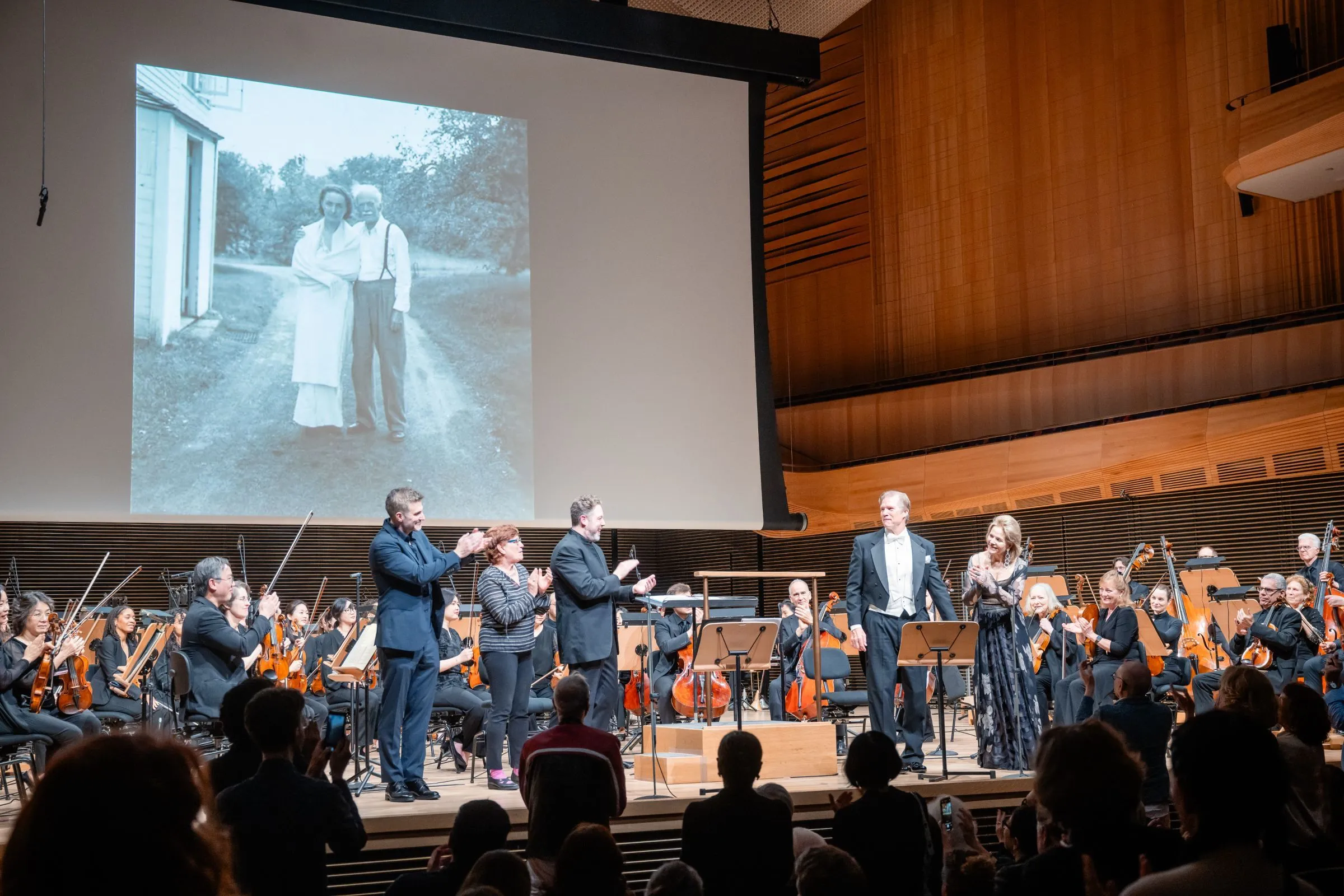Review: ‘Scenes from a marriage: The Brightness of Light at the NY Philharmonic’
The Brightness of Light creative team: from L to R, the New York Philharmonic, composer Kevin Puts, projection designer Wendall K. Harrington, conductor Brett Mitchell, baritone Rod Gilfry, and soprano Renée Fleming. © Brandon Patoc
NEW YORK — Bachtrack has published a review of Brett Mitchell’s recent subscription debut with the New York Philharmonic:
Georgia O’Keeffe and Alfred Stieglitz wrote thousands of letters to each other, beginning in 1916 and continuing until his death 30 years later. Along the way, her talent and his influence turned them into one of the most influential artistic couples the United States has ever produced. Kevin Puts memorializes their complex relationship, and their way with words, in The Brightness of Light, a song cycle drawn from their voluminous correspondence. Previously heard in Boston, Chicago, Los Angeles and Kansas City since its 2019 premiere, the work made its long-awaited Manhattan debut at the New York Philharmonic, featuring its original stars, Renée Fleming and Rod Gilfry.
Puts approaches the musical language in his typical style, an unapologetic embrace of neo-romanticism that recalls Barber and other mid-20th century American composers. The orchestra swells in two overwhelmingly lush interludes, Georgia and Alfred and The High Priestess of the Desert, with deeply chromatic tutti passages that envelope the listener in an intense sound world. There is a pleasing lyricism to Puts’ writing here, and the Philharmonic produced an appropriately warm coloring under conductor Brett Mitchell, a last-minute replacement…
Mitchell rounded out the program with a complete performance of Daphnis et Chloé, the latest in the Philharmonic’s ongoing celebration of Ravel’s 150th anniversary. The unusually bright acoustic of David Geffen Hall since its renovation in 2022 served the piece well, isolating solo voices in the woodwind and brass that sometimes get lost within the overall tapestry of the hour-long work. Mitchell kept the action moving seamlessly in a work that can easily turn a conductor into a traffic cop, and while the listener’s attention sometimes cannot help but wane, the Philharmonic’s reading offered a performance delightfully varied in color and style. Much credit goes to the New York Philharmonic Chorus, prepared by Malcolm J Merriweather, whose wordless cries of ecstasy set the right bacchic mood.
To read the full review, please click here.

